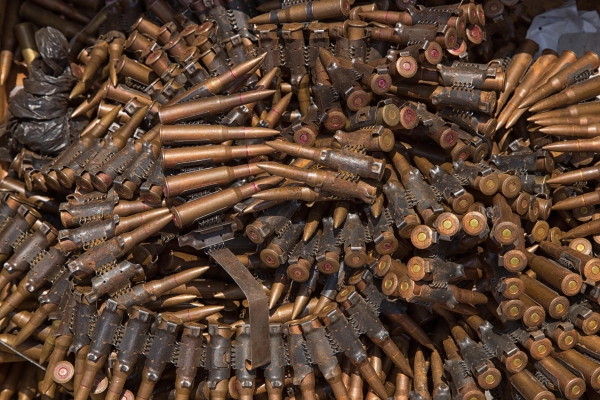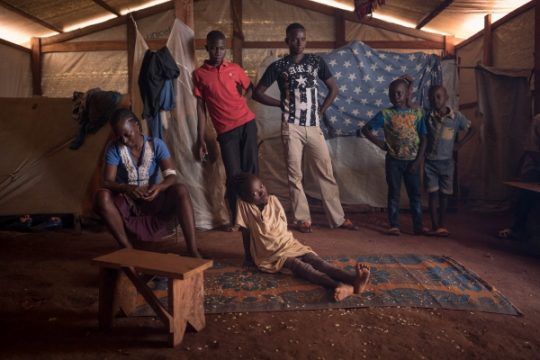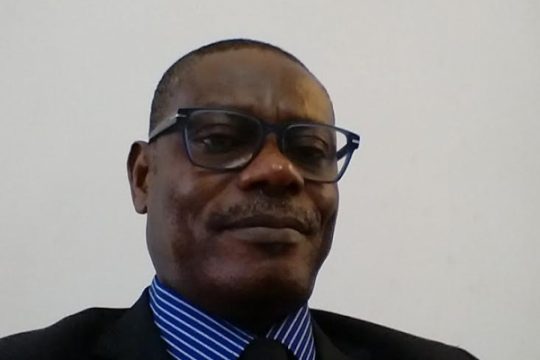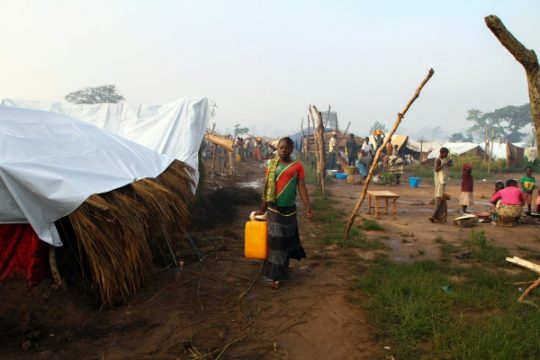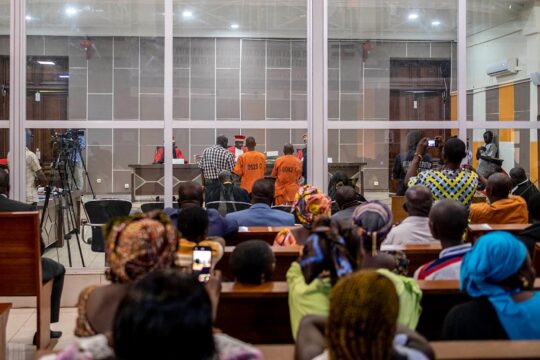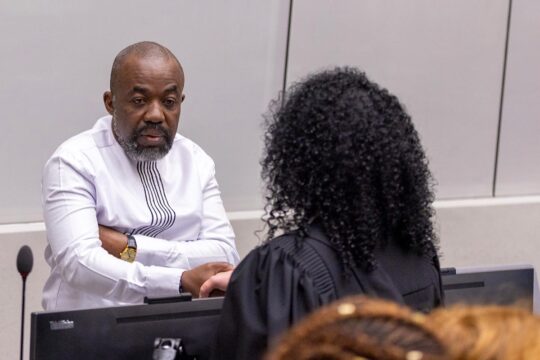In the last ten years, the Central African Republic has had a dozen peace plans. None have ever been implemented. Here we look back and analyse this serial failure, as people close to armed groups are admitted into government. This move by the president, Faustin-Archange Touadéra, “in the name of national reconciliation” comes as UN humanitarian chief Stephen O’Brien warned there are “early warning signs of genocide in the Central African Republic”.
Is the Central African Republic (CAR) a serial killer of peace plans? From the 2007 Sirte accord concluded under the late “Mediator and Guide of the Great Libyan Revolution” Muammar Gaddafi to the two agreements reached in recent months – one in Rome in June intiated by Vatican diplomacy (Community of Sant’Egidio) and the other in July in Libreville led by the African Union (“Roadmap for Peace and National Reconciliation in the Central African Republic”) --, the issues covered in these peace accords and the solutions put forward hardly vary, and nor do the vain promises: an immediate end to hostilities, power sharing, Disarmament, Demobilization, Reintegration and Rehabilitation (DDRR) of combatants, return of refugees and IDPs, protection of civilians, respect of international humanitarian and human rights law, and reconciliation. They basically only differ on two major things: the issue of a general amnesty and the way in which power is to be shared.
Let us remind ourselves briefly of the facts. Since the rule of François Bozizé (2003-2013), the CAR has had four Heads of State and a succession of conflicts between armed groups as a powerless State watched on. The main split (but far from the only one) pits the ex-Seleka (officially dissolved in 2013), who are mainly Muslim militia from the northeast of the country, against mainly Christian self-defence groups known as Anti-Balaka. Both have committed terrible abuses. Armed groups from other countries and foreign forces (France, Chad and Uganda) have also intervened, along with UN peacekeepers. Despite the democratic election of current President Faustin-Archange Touadera in 2016 and the presence for the last three years of 12,000 UN peacekeepers, the situation continues to deteriorate. Right now, 80% of the country is beyond the government’s control. The number of internally displaced people has risen from 400,000 in April 2017 to 600,000 today, whilst hundreds of thousands of people have fled to neighbouring countries. In brief, the situation has never been so worrying. A top UN official says there are “early warning signs of genocide” with armed groups seeking to wipe out populations they consider hostile.
Peace first, justice later?
Since 2007, some one dozen peace plans and roadmaps for reconciliation have been drawn up, without exerting any real grip on reality. The leaders of the main armed groups waging a merciless war against each other are touchingly unanimous in asking the international community to include in each peace accord a generous programme of Disarmament, Demobilization, Reintegration and Rehabilitation (DDRR) for ex-combatants. The armed groups are also sticking to identical demands for a general amnesty for crimes they have committed. Sometimes this demand has been met, such as in the Sirte and Birao accords of 2007, and more recently in the Benguela (Angola) meeting of December 2016, where amnesty was considered by the leaders of the ex-Seleka as the “political and legal solution” appropriate to end the war. Other agreements (Libreville 2008 and 2017, Brazzaville 2014) limit amnesty to crimes not covered by the International Criminal Court (ICC), which has opened investigations in the CAR. The Bangui Republican Pact (2015), which is particularly ambitious on the justice front, advocates that in addition to the ICC there should be a Special Criminal Court (currently being set up), a Truth, Justice and Reconciliation Commission, reform of the judicial system and deployment of conflict resolution mechanisms springing from within the country. This is a very comprehensive menu, but is largely inapplicable because of the State’s absence in most of the country.
The challenge is huge: how can you re-establish Republican order if real power is in the hands of armed groups? Hence the solution advocated by Chadian President Idriss Deby, which is to give priority in the CAR to the search for peace and be prepared to temporarily sacrifice justice. In an interview with Jeune Afrique, Idriss Deby argued for a inclusive policy also bringing on board “all those outlawed by the international community, i.e. former presidents Bozizé and Djotodia, the leaders of the ex-Seleka and Anti-Balaka”. “If there are some who have blood on their hands, give it time,” he added. “National reconciliation is the first priority. Without that, most of the CAR will remain in the hands of armed groups.”
No real peace without justice?
This point of view is rejected by the Central African population which made its voice heard in popular consultations in 2015 and continues to do so in spaces for dialogue, saying that there can be no real peace without justice. This view is supported by the European Union, which considers that impunity will only cause new tragedies. Given a government in Bangui with no army or judicial system only holding on with the support of an increasingly divided international community, and the fragmentation and criminalization of armed groups looting the contry’s gold and diamond resources, the population’s suffering continues. After saying that “justice will be implacable”, President Faustin-Archange Touadera announced on September 12 a cabinet reshuffle bringing in people close to the ex-Seleka and Anti-Balaka militia, in the name of “national reconciliation”. Given the opposition to an amnesty, the softer concept of a “presidential pardon” was introduced in the last peace accord. The search for a solution continues…
This November, the United Nations is expected to renew the mandate of the 12,000 peacekeepers of MINUSCA (UN force in the CAR), and perhaps increase its number as desired by President Touadera. The UN will need to show imagination as well as political will to prevent the nightmare of the Central African people continuing. If not, as the African proverb says, “when elephants fight, it is the grass that suffers”.
This article was first published in Le Monde, September 19, 2017



